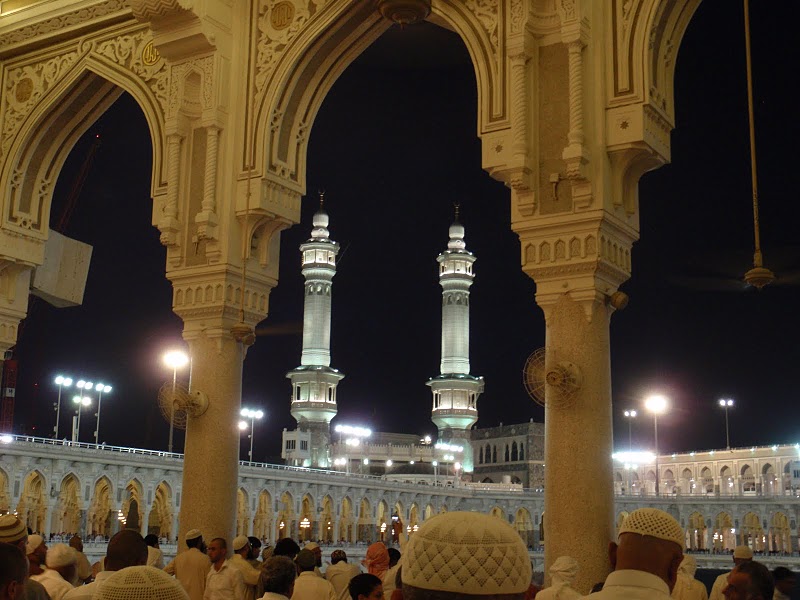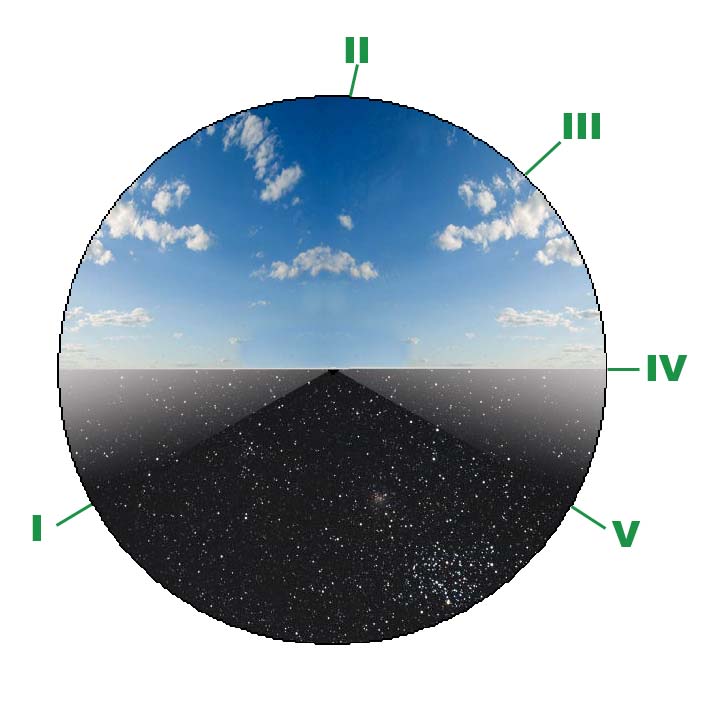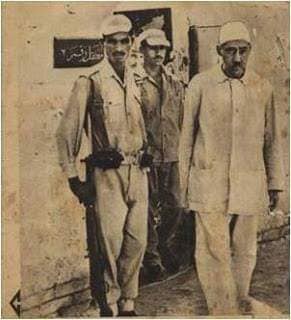|
Al-Lail
Sūrat al-Layl ( ar, الليل, “The Night”) is the ninety-second ''sūrah'' (chapter) of the Qur'an, containing twenty-one '' āyāt'' (verses). This sūrah is one of the first ten to be revealed in Mecca. It contrasts two types of people, the charitable and the miserly, and describes each of their characteristics. Summary *1-4 Oaths by various natural objects *5-13 The obedient blessed and the covetous accursed *14-16 The covetous warned with hell-fire *17-21 True believers shall be rewarded hereafter Date of the revelations ''Sūrah Al-Lail'' is a Meccan sura, and was among the first ten ''surahs'' to be revealed. Meccan surahs are chronologically earlier surahs that were revealed to the prophet Muhammad at Mecca before the hijrah to Medina in 622 CE. They are typically shorter, with relatively short '' ayat'', and mostly come near the end of the Qur'an’s 114 sūwar. Most of the surahs containing '' muqatta'at'' are Meccan. According to Yusuf Ali, Al-Lail may be p ... [...More Info...] [...Related Items...] OR: [Wikipedia] [Google] [Baidu] |
Ash-Shams
Ash-Shams ( ar, الشمس, "The Sun") is the 91st surah of the Qur'an, with 15 ayat or verses. It opens with a series of solemn oaths sworn on various astronomical phenomena, the first of which, "by the sun", gives the sura its name, then on the human soul itself. It then describes the fate of Thamud, a formerly prosperous but now extinct Arab tribe. The prophet Saleh urged them to worship God alone, and commanded them in God's name to preserve a certain she-camel; they disobeyed and continued to reject his message; they killed the she-camel and God destroyed them all except those who had followed Salih. Summary *1-10 Oaths that man’s happiness and misery depends on the purity or corruption he hath wrought in it *11-15 Thamúd destroyed for rejecting their prophet Name of the surah Jalaluddin Al-Suyuti co-author of the classical Sunni tafsīr known as Tafsir al-Jalalayn suggests that some of the sūrahs have been named using incipits (i.e. the first few words of the sura ... [...More Info...] [...Related Items...] OR: [Wikipedia] [Google] [Baidu] |
Al-Fajr (surah)
Al-Fajr ( ar, الفجر, “The Dawn”, “Daybreak”) is the eighty-ninth chapter (sura) of the Quran, with 30 ayat or verses. The sura describes destruction of disbelieving peoples: the Ancient Egyptians, the people of Iram of the Pillars, and Mada'in Saleh. It condemns those who love wealth and look with disdain upon the poor and orphans. Righteous people are promised Paradise – the final verse says "And enter you My Paradise!". The Surah is so designated after the word wal-fajr with which it opens. Summary *1-4 Various oaths by natural objects *5-13 Unbelievers are warned by the fate of Ád, Thamúd, and Pharaoh *14-17 Man praises God in prosperity, but reproaches him in adversity *18-22 Oppression of the poor and the orphan denounced *23-26 The wicked will vainly regret their evil deeds on the judgment-day *27-30 The believing soul invited to the joys of Paradise Then the surah discusses that Man praises God in prosperity, but reproaches him in adversity in ... [...More Info...] [...Related Items...] OR: [Wikipedia] [Google] [Baidu] |
Ad-Dhuha
Al-Ḍuḥā ( ar, الضحى, “The Morning Hours”, “Morning Bright” ,"The Early Hours") is the ninety-third chapter (''surah'') of the Qur'an, with 11 '' āyat'' or verses. Qur'an 93 takes its name from Arabic its opening word, ''al-ḍuḥā'', "the morning". Although there is some debate amongst scholars, this sura is often considered to be the second revealed to the Islamic prophet Muhammad. After the first sura was received, al-Alaq, there was a period of silence in which no further messages were revealed. During this time, Muhammad wondered if he had somehow displeased God, who it seemed for a while was no longer sending down His message. This sura broke that silence, and reassured Muhammad that all will be understood in time. The image of the morning (''al-ḍuḥā'') is the first word of the sura, and can be understood as symbolizing Muhammad's "new day" as the Messenger of God, as well as the "dawn" of the new way of life that would become Islam. After this s ... [...More Info...] [...Related Items...] OR: [Wikipedia] [Google] [Baidu] |
Spirituality
The meaning of ''spirituality'' has developed and expanded over time, and various meanings can be found alongside each other. Traditionally, spirituality referred to a religious process of re-formation which "aims to recover the original shape of man", oriented at "the image of God" as exemplified by the founders and sacred texts of the religions of the world. The term was used within early Christianity to refer to a life oriented toward the Holy Spirit and broadened during the Late Middle Ages to include mental aspects of life. In modern times, the term both spread to other religious traditions and broadened to refer to a wider range of experiences, including a range of esoteric and religious traditions. Modern usages tend to refer to a subjective experience of a sacred dimension and the "deepest values and meanings by which people live", often in a context separate from organized religious institutions. This may involve belief in a supernatural realm beyond the ordinarily obs ... [...More Info...] [...Related Items...] OR: [Wikipedia] [Google] [Baidu] |
Ethiopia
Ethiopia, , om, Itiyoophiyaa, so, Itoobiya, ti, ኢትዮጵያ, Ítiyop'iya, aa, Itiyoppiya officially the Federal Democratic Republic of Ethiopia, is a landlocked country in the Horn of Africa. It shares borders with Eritrea to the north, Djibouti to the northeast, Somalia to the east and northeast, Kenya to the south, South Sudan to the west, and Sudan to the northwest. Ethiopia has a total area of . As of 2022, it is home to around 113.5 million inhabitants, making it the 13th-most populous country in the world and the 2nd-most populous in Africa after Nigeria. The national capital and largest city, Addis Ababa, lies several kilometres west of the East African Rift that splits the country into the African and Somali tectonic plates. Anatomically modern humans emerged from modern-day Ethiopia and set out to the Near East and elsewhere in the Middle Paleolithic period. Southwestern Ethiopia has been proposed as a possible homeland of the Afroasiatic langua ... [...More Info...] [...Related Items...] OR: [Wikipedia] [Google] [Baidu] |
Abu Bakr
Abu Bakr Abdallah ibn Uthman Abi Quhafa (; – 23 August 634) was the senior companion and was, through his daughter Aisha, a father-in-law of the Islamic prophet Muhammad, as well as the first caliph of Islam. He is known with the honorific title al-Siddiq by Sunni Muslims. Abu Bakr became one of the first converts to Islam and extensively contributed his wealth in support of Muhammad's work. He was among Muhammad's closest companions, accompanying him on his migration to Medina and being present at a number of his military conflicts, such as the battles of Badr and Uhud. Following Muhammad's death in 632, Abu Bakr succeeded the leadership of the Muslim community as the first Rashidun Caliph. During his reign, he overcame a number of uprisings, collectively known as the Ridda Wars, as a result of which he was able to consolidate and expand the rule of the Muslim state over the entire Arabian Peninsula. He also commanded the initial incursions into the neighbouring ... [...More Info...] [...Related Items...] OR: [Wikipedia] [Google] [Baidu] |
Tafsir Al-Jalalayn
''Tafsīr al-Jalālayn'' ( ar, تفسير الجلالين, lit=Tafsir of the two Jalals) is a classical Sunni interpretation (tafsir) of the Qur'an, composed first by Jalal ad-Din al-Maḥalli in 1459 and then completed after his passing by Jalal ad-Din as-Suyuti in 1505, thus its name, which means "Tafsir of the two Jalals". It is recognised as one of the most popular exegeses of the Qur'an today,''Tafsir al-Jalalayn'', Altafsir.com accessed 16 March 2014 due to its simple style and its conciseness, as it is only one volume in length. Tafsir al-Jalalayn has been translated into many languages including , [...More Info...] [...Related Items...] OR: [Wikipedia] [Google] [Baidu] |
George Sale
George Sale (1697–1736) was a British Orientalist scholar and practising solicitor, best known for his 1734 translation of the Quran into English. In 1748, after having read Sale's translation, Voltaire wrote his own essay "De l'Alcoran et de Mahomet" ("On the Quran and on Mohammed"). Sale was also author of ''The General Dictionary'', in ten volumes, folio. Biography Born in Canterbury, Kent, he was educated at the King's School, Canterbury, and in 1720 became a student of the Inner Temple. It is known that he trained as a solicitor in his early years but took time off from his legal pursuits, returning at need to his profession. Sale was an early member of the Society for Promoting Christian Knowledge. Sale became seriously ill with fever for eight days before his death. George Sale died at Surrey Street, The Strand, London, on 13 November 1736. Sale was buried at St Clement Danes in London. His family consisted of a wife and five children. The Quran In 1734, S ... [...More Info...] [...Related Items...] OR: [Wikipedia] [Google] [Baidu] |
Sayid Qutb
Sayyid 'Ibrāhīm Ḥusayn Quṭb ( or ; , ; ar, سيد قطب إبراهيم حسين ''Sayyid Quṭb''; 9 October 1906 – 29 August 1966), known popularly as Sayyid Qutb ( ar, سيد قطب), was an Egyptian author, educator, Islamic scholar, theorist, revolutionary, poet, and a leading member of the Egyptian Muslim Brotherhood in the 1950s and 1960s. In 1966, he was convicted of plotting the assassination of Egyptian President Gamal Abdel Nasser and was executed by hanging. He is considered as "the Father of Salafi jihadism", the religio-political doctrine that underpins the ideological roots of global jihadist organisations such as al-Qaeda and ISIL. Author of 24 books, with around 30 books unpublished for different reasons (mainly destruction by the state), and at least 581 articles, including novels, literary arts critique and works on education, he is best known in the Muslim world for his work on what he believed to be the social and political role of Islam, pa ... [...More Info...] [...Related Items...] OR: [Wikipedia] [Google] [Baidu] |
Fi Zilal Al-Qur'an
''Fi Zilal al-Qur'an'' ( ar, في ظِلالِ القرآن, fī ẓilāl al-qur'ān, lit=In the Shade of the Qur'an) is a highly influential commentary of the Qur'an, written during 1951-1965 by the Egyptian Sayyid Qutb (1906-1966), a leader within the Muslim Brotherhood. He wrote (or re-wrote) most of the original 30 volumes (114 Surahs) Prison literature, while in prison following an attempted assassination of Egyptian president Gamal Abdel Nasser in 1954."Kalamullah.Com , Fi Dhilal al-Quran", Kalamullah.com, 2007, webpageKalam-shade The book outlines Qutb's vision of a Muslim state and society. It has had much influence throughout the Muslim world, especially amongst the ordinary lay practitioners of Islam in the Arab world. The work extends to 30 volumes that correspond to the 30 juz' parts of the Qur'an. It has been translated into several languages, including English language, English, French language, French, German language, German, Urdu, Turkish language, Turkish, Indone ... [...More Info...] [...Related Items...] OR: [Wikipedia] [Google] [Baidu] |
Egyptian Muslim Brotherhood
In Egypt, the Muslim Brotherhood ( ar, جماعة الاخوان المسلمين ''jamāʿat /al-ikhwan/el-ekhwan al-muslimīn'', ) is a Sunni Islamist religious, political, and social movement,Eric Trager,The Unbreakable Muslim Brotherhood", ''Foreign Affairs'', September October 2011, p. 114–222. (full text not available for free on internet) with adherents estimated to number between 2 and 2.5 million. Founded by Hassan al-Banna in 1928, the group spread to other Muslim countries but has its largest organization in Egypt, despite government crackdowns in 1948, 1954, 1965 and 2013, after plots, or alleged plots, of assassination and overthrow were uncovered."'Shariah in Egypt is enough for us,' Mus ... [...More Info...] [...Related Items...] OR: [Wikipedia] [Google] [Baidu] |







.png)